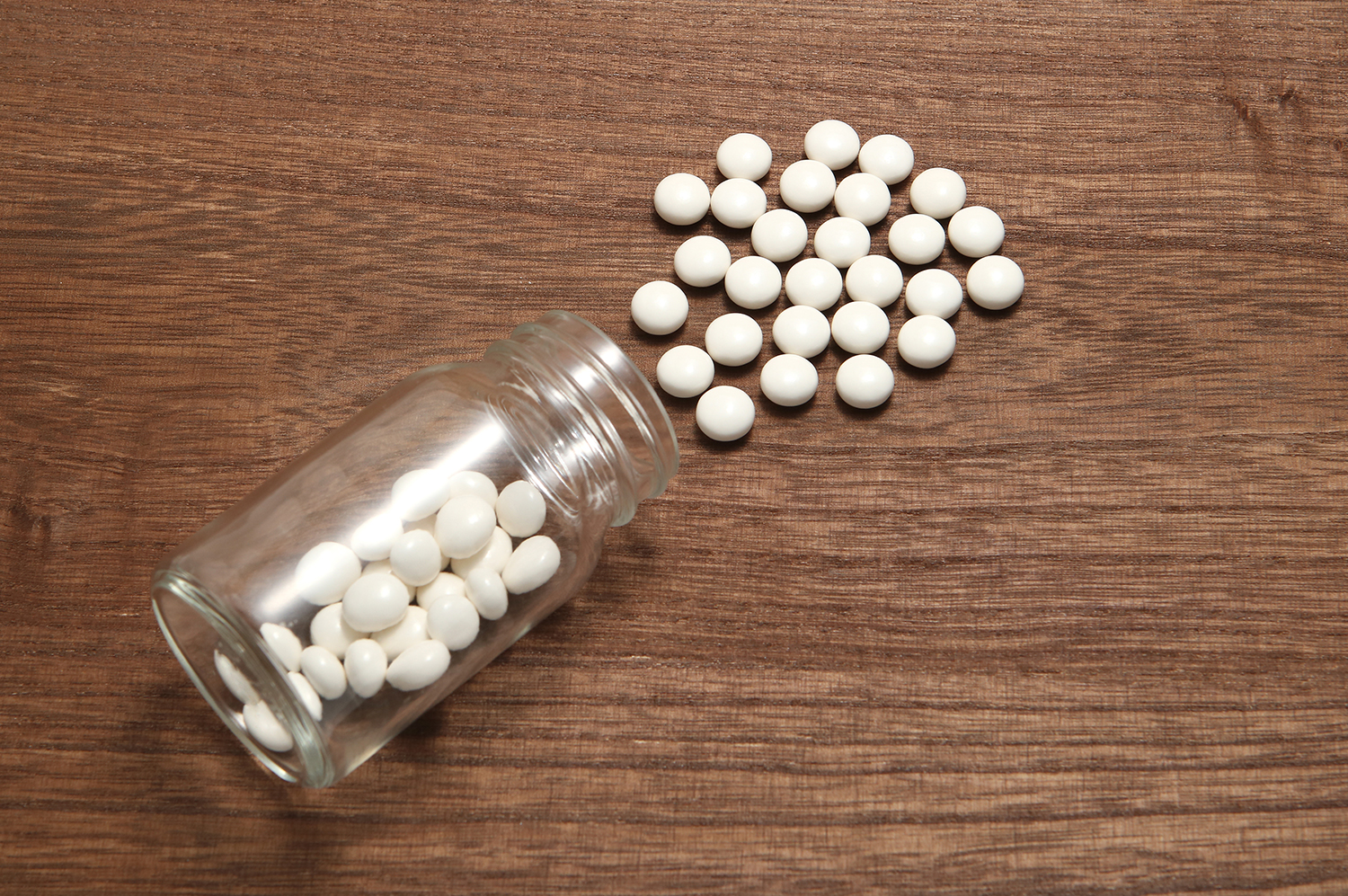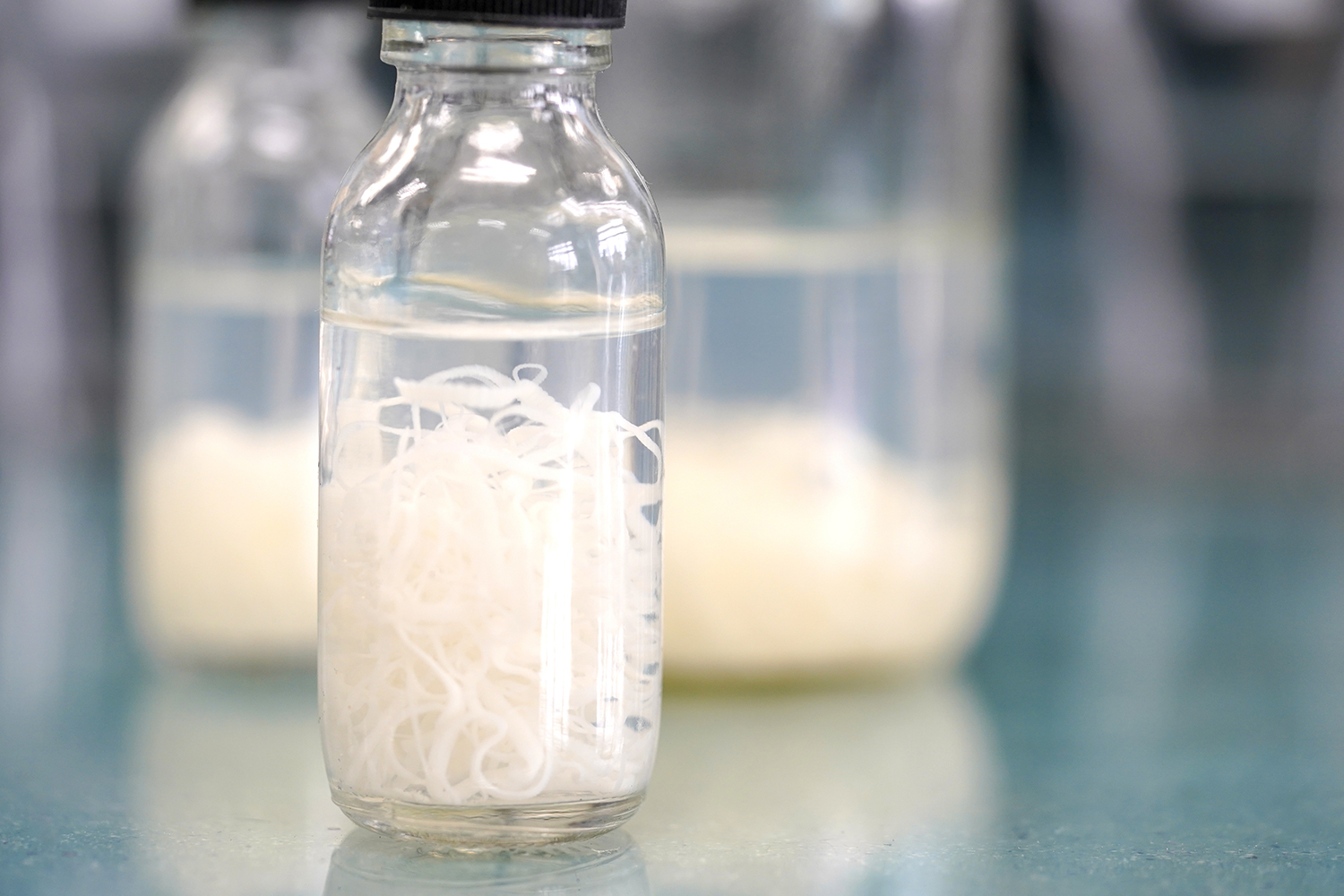Some individuals may not present any symptoms of tapeworm infection. But if tapeworm infection is diagnosed, medications are prescribed to treat the infection. In some cases, tapeworm exits the body on its own, without any treatment.

Treatment for intestinal tapeworm infection:
Adult tapeworm infections are usually treated by oral medicines such as praziquantel, albendazole, and nitazoxanide. These are anthelmintic drugs which kill the parasitic worms by attacking or dissolving them and eliminating them from the body through feces. The type of medication prescribed depends on the site of infection and the species of the tapeworm.
If the treatment does not eliminate the head and neck of the tapeworm, the worm can grow again (regenerate). Hence, the head and neck must be excreted for the treatment to be effective.
Sometimes, a laxative may be given to help the tapeworm come out of the intestine. In case of pork tapeworm infection, some doctors may prescribe antiemetic, drugs that prevent vomiting, as the individual may swallow the tapeworm larvae while vomiting and cause re-infection. The infection with tapeworm larvae is difficult to be treated; hence, one must take care to prevent re-infection.
After completing the course of oral medication, examination of several stool samples over two to four months may be needed to be certain that the tapeworm infection has cleared. Multiple samples are required as the segments, larvae or eggs are not regularly released into the feces.

Treatment for invasive tapeworm infection:
The treatment for invasive tapeworm infection depends on several factors, such as the number of cysts, the location of the cysts, the symptoms, etc.
Below are some of the drugs used to treat invasive infections:
Anthelmintic drugs: Albendazole is recommended to shrink cysts caused by certain tapeworms. Imaging tests such as X-ray or ultrasound may be performed periodically to endure that the drug is effective, and the cysts are eliminated.
Anti-inflammatory drugs: These drugs are prescribed when the dying tapeworm cysts cause inflammation in the tissues or organs. These medicines include corticosteroids such as dexamethasone or prednisone. Corticosteroids can also be prescribed to individuals with cysts in the brain.
Anti-epileptic therapy: Seizures are common symptom of neurocysticercosis. These seizures can be managed by anti-epileptic medications. Shunt placement: Hydrocephalus, where too much fluid is accumulated in the brain, can occur in one type of invasive infection. A permanent tube (also called shunt) may be placed in the head to drain the fluid.
Surgery: If the cysts develop in the lungs, liver or eyes, they can affect the organ function significantly. Some cysts can block the flow of the fluid that surrounds the spinal cord and brain. Such cysts are removed surgically. In some cases, a medication like formalin may be injected into the cyst to kill the larvae before the cyst is removed.
An alternative to surgery is the use of a drainage tube, which allows the area with cysts to be irrigated (rinsed aggressively) with anti-parasitic solutions. Surgery to remove cysts is not recommended in cases where the cysts are near a major blood vessel or an organ.
Tapeworm infection can be successfully treated if appropriate treatment is received for the particular type of tapeworm causing the infection.